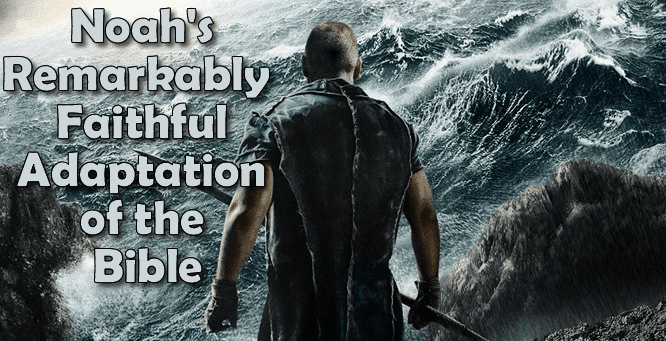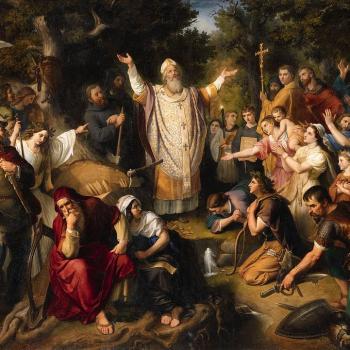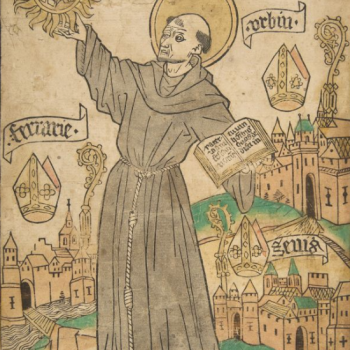Last night I went and saw Noah, and I have to admit I was more than a little skeptical. The Story of Noah is one of the Bible stories that has fascinated, and dare I say, haunted me for my entire life. It is an incredible story that raises all the big questions about evil, God’s justice, violence, ecology, mercy and sacramentality.
I was skeptical because I have never seen the story adapted well by anyone.
Generally people adapt the story in one of two ways:
1) They white wash it and/or make it safe – in this way the dark themes and counter-cultural elements are ignored. The story ceases to challenge people, and you can walk away in roughly the same state you started in.
2) They abuse it – in this way the story is made to say something it never intended to say. The texts are misappropriated and the story becomes about something completely different then what the text seems to indicate.
This movie did neither of these things. There were some unexpected twists and turns, but I don’t think there was ever a moment when I felt they betrayed the either the message or the themes of the original story. This was a movie that was deeply faithful to the biblical material.
There wasn’t a single decision made that I felt was inconsistent with the biblical narrative. Each one showed a great deal of thought, reflection, and research into the reception tradition of the material as well as a very close reading of the text. In fact I would argue that this movie is one of the most faithful adaption of the Bible I have ever seen. Here are the 5 reasons why (Warning Spoilers!!):
- It includes everything – This movie does an incredible job of taking every single word of the text in Genesis seriously. There is not a sentence which is ignored or glossed over in the whole movie. As someone who has read the text methodically I was SO impressed with the little details they noticed and brought up. They brought in characters like Methuselah who one can calculate would have been alive during the Ark’s construction by plotting genealogies. They included the nephalim (mysterious creatures of the primordial world). They included the interesting narratives about Cain’s urbanized descendants and their propensity for great violence. It was the first adaption of the story that I have encountered where the whole cycle from creation to the flood was taken seriously and weaved together within the central themes of the narrative.
- It maintains the primeval cosmology of the world – This was HUGE for me. So often attempts that are made to describe the flood attempt to do so with the assumption that the world was understood in the same way back then that it is understood today. That was simply not the case. In this world there is room for the supernatural in the everyday. In this world leviathan rules the deeps. In this world our earth rests in a world between primordial waters of chaos that can burst through from above and below. This movie helps us to experience the story of Noah through the eyes of the original readers, and in that sense it is much more of a literal reading than the ill fated attempts often taken by the so called biblical-litteralists who try to fit the flood into science.
- It keeps the challenge of the book – This movie is rich with the cultural critiques one encounters in the Biblical narrative. The Genesis account of the Bible offers a critical look at the emergence of urbanized society, the myth of redemptive violence, the ecological mandate of the creator and the primordial evil of men’s hearts. These themes are often glossed over with a flat Christological reinterpretation in Christian circles, and the powerful critique offered in the text itself is subsumed in anachronistic allegoricalization which we in the Church so easily fall into. This movie keeps the original themes front and center. I find this to be a powerful move. It moves the audience from the smug self-satisfaction of the sanctified and saved to a place of re-evaluation where we are forced to ask ourselves if we are not more like the violent and condemned drowned in the deluge. In this version we come to terms with the true horror of the story and it offers no easy avenues of escape or ready answers.
- It reads the text carefully, and interpreted faithfully – Not only did they include everything, but they really dug into what each line could mean. There isn’t a single place where I thought the Biblical text was contradicted, but there were a LOT of places where they expanded and played with what the text could mean, making the most of little details and slight changes in wording.
- It is inspired by the history of interpretations – This movie does it’s homework. It does not simply make things up out of thin air but it situates it’s imagination within the context of of a wide and diverse reception history. In this film you can find the fingerprints of of inter-testimonial apocolyptisism, the Thomistic theology of righteousness, talmudic imagination, and Christological undertones.
This movie helps to redefine the genre of Bible movies, and I think it does so in a powerful and provocative way.
Four Stars! (out of four)













